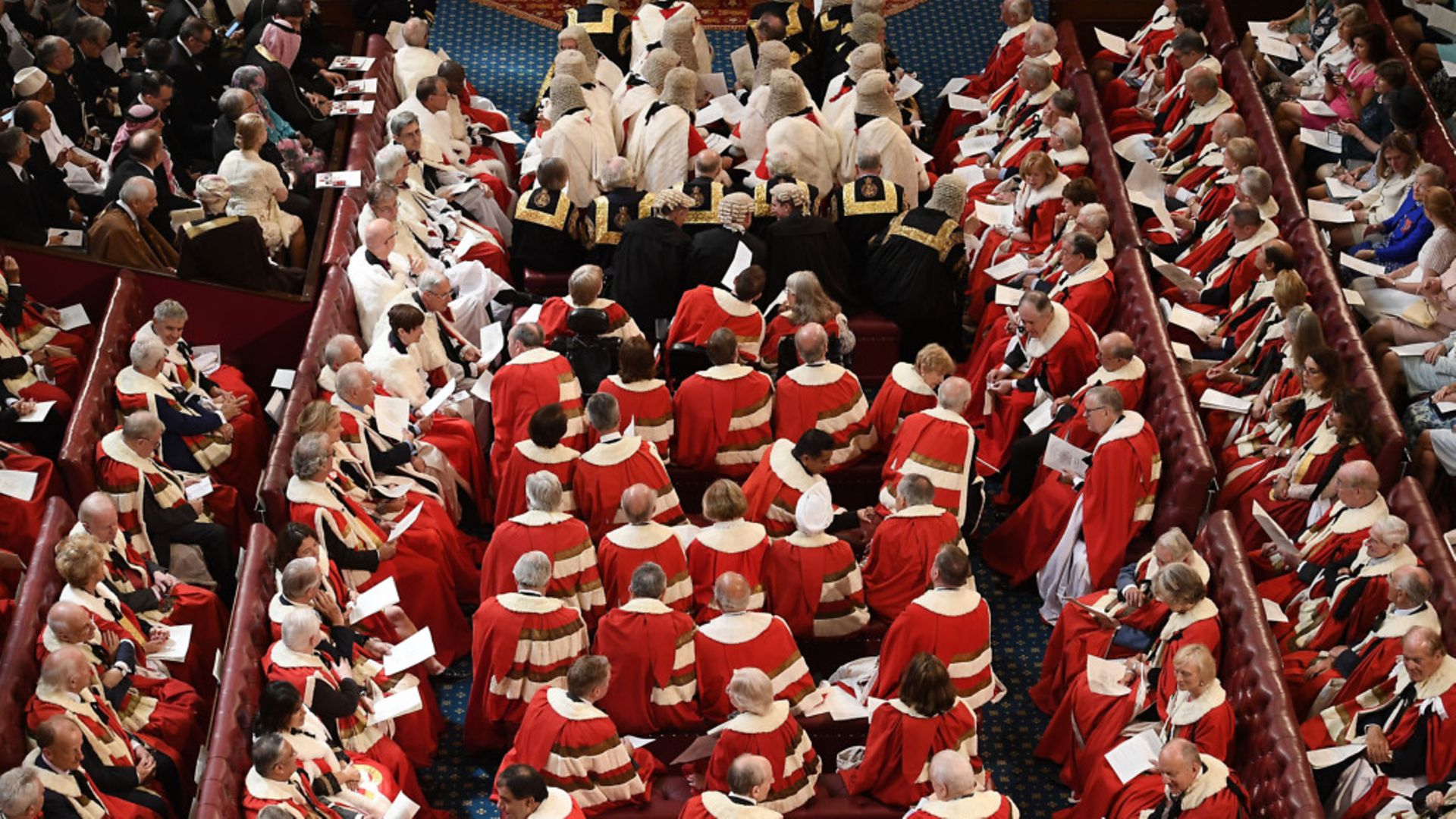
IAN DUNT offers a radical and thought-provoking list of changes he argues would make Britain better. Do you agree or disagree?
Make media studies mandatory in school
Every year or so, a right wing columnist does a piece mocking media studies as a soft subject for intellectual deadbeats. They were never right, but they’re even more wrong now. Media, and particularly social media, is driving us mad – from radicalisation on YouTube, to conspiracy theories on Facebook, to unrealistic body images on Instagram. We can’t uninvent it, but we can equip people with the capacity to critically appraise it, by making media studies a compulsory part of the syllabus in school. That way the next generation might be able to respond more sensibly than we have done.
Legalise drugs
The war on drugs committed one of the cardinal sins of policy-making: the attempt to outlaw what people are going to do anyway. This drove billions to the black market, put young people in danger by having them consume drugs with no regulatory oversight as to their contents, and led to predictable racist criminal justice outcomes. It is time to accept that drugs won the war and legislate accordingly. Cannabis should be legalised and all previous cannabis convictions expunged. Harder drugs like cocaine and MDMA should be regulated so that they are sold in single adult use doses, in unbranded pharma-style packaging, with clear content labelling and health warnings.
Fix non-London transport
Poor transport infrastructure outside the capital is a major contributing factor to Britain’s sluggish productivity level and the general sense that London gets everything while the rest of the country declines. We can address this by completing HS2, which will take fast intercity trains off the mainline and thereby allow more trains servicing small towns to be fitted on the existing line. It should be followed by HS3 to connect the north. We also need a dedicated metro or tram service for the UK’s major cities. France’s second, third, and fourth largest cities have eight Metro lines between them. The UK’s equivalents have none, outside of Manchester’s Metrolink.
Fix citizenship
Liberals often talk about wanting an open form of British patriotism. This feels quite abstract, but the citizenship process puts it in concrete terms. The cost of an application for British citizenship is £1,330, with further associated charges often pushing up the price-tag to more like £4,000. The cost in Germany, for comparison, is 255 euros. Charges in the UK should be brought right down and citizenship ceremonies turned into big, glorious, patriotic celebrations rather than the drab ramshackle events they currently are. The moment of citizenship encapsulates what kind of a country we want to be. They need to be open and proud, rather than stingy and inadequate.
Sort the prison system
Britain’s prison system bulges with record levels of self-harm and violence, traumatising inmates and thereby making rehabilitation less likely. We need fewer people in prison. No-one convicted of a non-violent offence – with a few possible exceptions, like burglary – should be incarcerated. Those who are, should be put in small local prisons where they can maintain family contact. Resources should be dedicated to educational attainment and work training. Family connection and work are the attributes most likely to prevent reoffending. We should work to encourage rather than hinder them.
Reform politics
This country’s political system is no longer fit for purpose. The House of Lords has become a clearing house for zombified political careers. The first-past-the-post system means that even where liberal left parties collectively get more of the vote, they end up splintered in opposition – as we saw in 2019. The Lords should be reformed along the lines of Jack Straw’s 2008 white paper: half elected and half appointed, to ensure that it has democratic legitimacy but that historians, scientists, economists and other experts can be selected to provide scrutiny of legislation. Elections should take place under proportional representation.
Scrap the ban on love
There are too many needlessly cruel aspects of the immigration system to go into here, but the spousal visa income requirement really does stand out. It mandates that anyone trying to bring over their foreign partner must prove they earn over £18,600 a year. For many people – especially those outside London, in retail, or working part-time – this is impossible. This policy targets British families, separates married couples and forces children to grow up without a parent. It is heartless and completely pointless. It should be scrapped.
Pilot Universal Basic Income
One of the great injustices of poverty is that it does not allow you to aspire towards what you really want in life. Instead of being able to undertake training, for instance, you are forced to work all the time, in low paid jobs, in order to keep the electricity running. Universal Basic Income could therefore be a game-changer: a small regular payment to everyone, freeing them to invest their time in improving themselves and their prospects. There are, however, several concerns about how feasible it is. Pilot projects in cities could test whether it really would encourage beneficial work decisions and its affordability.
Support local journalism
The decline of regional journalism has far-reaching consequences. As local newspapers close or slash staff numbers, countless stories of crime, public health and local corruption go unreported. It creates a news desert, which can be filled by the post-truth provocations of populist politicians on social media. This problem can be addressed using state support, for instance by a public fund for local journalism, a tax deduction for personal subscriptions to eligible local news organisations, tax relief for publishers producing local public interest news, or the offsetting of production expenditure in local newsrooms.
Take on the faith schools
Children do not recognise the divisions of class, race or religion. They have to be instructed in them by adults. This is precisely what we do by allowing oversubscribed state-funded faith schools to select on the basis of religious belief. Happily though, it is relatively easy to repair. They currently have an exemption under the Equalities Act. That exemption should be removed. With a flick of the pen, the state would no longer be complicit in the religious division of children.
Support trade unions
The period since the late 1970s has seen a steady erosion in trade union support, leading to soaring inequality, poor pay, insecure contracts and a widespread feeling that workers have no control over their lives. Trade union laws should be reformed so that employers of more than 50 workers, agency staff or employees are legally required to recognise a union and to allow elected representatives from the workforce to lead a process of determining representation. Legislation should require employers to allow for one hour per worker per week to be dedicated to democratic activities at work.
Repair the asylum system
The British asylum system brutalises the most vulnerable people in the world. It is a stain on our national reputation. The safe route into the UK, which was suspended last March, should be reinstated so no-one feels they need to get on a flimsy boat to reach our shores. Asylum seekers applying for refugee status should be allowed to work while they wait for a ruling. Legal aid funding should be increased and put on a sustainable hourly rate to correct the legal deserts which have emerged in the asylum system.
Revalue council tax
Council tax is profoundly regressive. The bands assessing house value were unfair when they were put in place in the early 1990s and have only become more so in the years since, as property prices rose at different speeds. We ought to scrap it and find a more equitable way of paying for council services, but failing that we can at least reform it. If properties were revalued based on 2019 prices and council tax made proportional to value, we would see significant falls in bills in some of the most deprived areas of the country, like Kingston upon Hull, Stoke-on-Trent and Blackpool, and rises in the places which have a conglomeration of multi-million pound properties, like Kensington and Chelsea.
Send everyone to university
The greatest advantage of university is the one we speak about the least. It isn’t about education or career opportunities. Those are just additional benefits. It’s that someone who has just reached adulthood has the chance to leave home, go somewhere else, away from family and childhood friends, and reinvent themselves, just at the moment that they have the intellectual and emotional maturity to do it. It is also one of the most reliable indicators that someone will have a liberal political outlook in their adult life. We have always restricted that extraordinary privilege to the middle classes, but everyone deserves it. We should incentivise university applications, especially among groups with historically low levels of take-up, and ensure that all higher education, including vocational training, requires a period of at least one year in an educational or training institute.
Talk honestly about our history
The conversation about Britain’s history is polarised between the culture war right, who treat any blemish on our record as a woke conspiracy, and the culture war left, who define Britain exclusively through colonialism and murder. There is a middle ground. We should include objective study of our colonial legacy in the curriculum, but also have pupils explore the under-discussed elements of British history which brought value to the world, such as the radical ideas of the English Civil War. Outside of schools, the debate on statues could be turned into a genuine national conversation – one which aspires to unify rather than divide – through local commissions. Perhaps, by having an honest conversation about our past, we’ll be able to have a more rational one about our future.
Have your say. Email letters@theneweuropean.co.uk
Warning: Illegal string offset 'link_id' in /mnt/storage/stage/www/wp-includes/bookmark.php on line 357
Notice: Trying to get property 'link_id' of non-object in /mnt/storage/stage/www/wp-includes/bookmark.php on line 37







